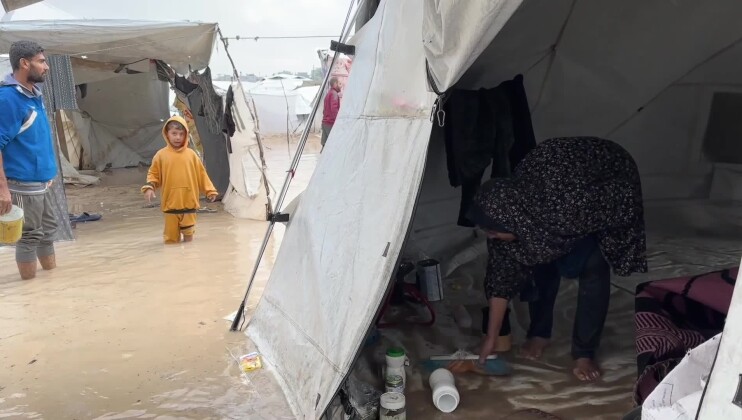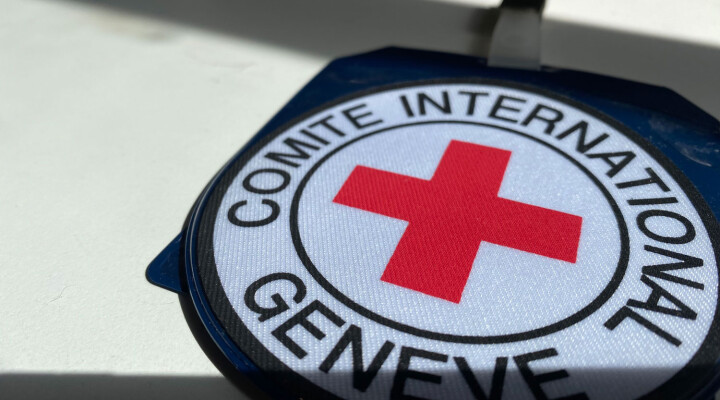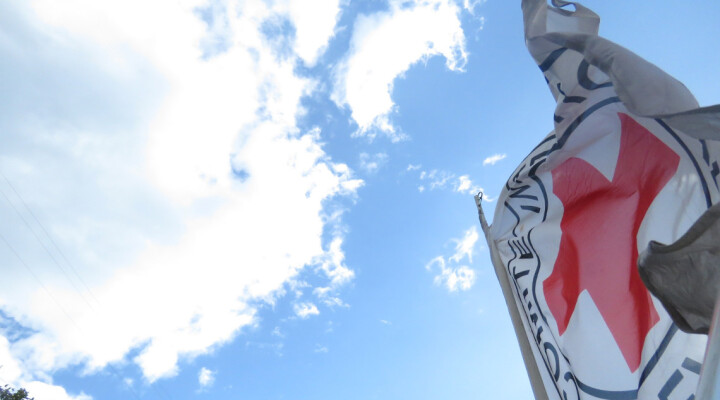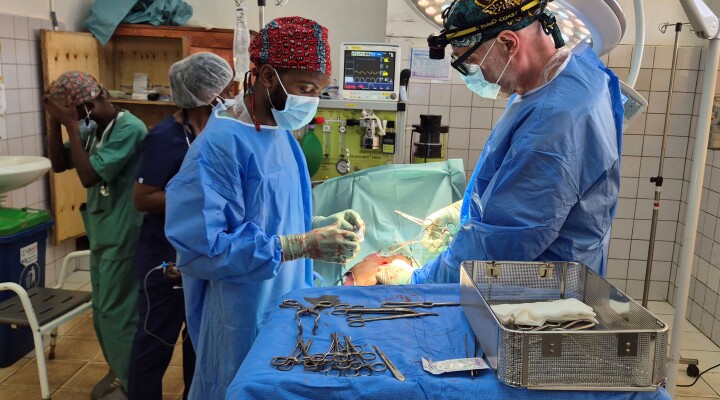Niger: Climate change and armed conflict threaten the livelihoods of nomadic herders
In Niger, as in many other countries in the Sahel,* livestock herders face a double threat to their way of life. Pastureland is shrinking at an alarming rate as temperatures rise and rainfall decreases due to climate change. At the same time, the presence of armed groups along traditional transhumance routes has made it dangerous to roam in search of greener pastures.
Boubacar Moukaila is a herder who has settled in Tillabéri. “There never used to be any security problems. We herders went wherever we liked. It was rare to see animals die of hunger. Now the pastures are cut off from us.”
Those herders who are still able to migrate with their livestock must do it earlier and earlier in the year and for longer periods as they search for remaining pastureland. Farmers, too, are struggling to harvest enough grain and vegetables from their fields.
Increasingly scarce resources, a lack of economic prospects and an ever-growing population have pitted farmers and herders against each other, giving rise to tensions that sometimes degenerate into violent clashes between the two groups.
For herders who have given up a nomadic lifestyle, being cut off from their usual pastures means that their herds are in danger. “What with climate change, there isn’t enough fodder,” said Hassoumou Diallo, head of Niger’s pastoral associations. Often, there is no choice but to let sick and healthy animals graze on the same land. “And that’s a real problem,” Diallo said.
In the Sahel region, a total of more than nine million animals will soon be vaccinated in an immunization campaign that should bolster the resilience of 1.5 million people. “In times of conflict or crisis, where [animal] health services are lacking, the ICRC provides support by immunizing the livestock of the most vulnerable herders,” Alioune Soumano, an ICRC veterinarian, explained.
Some herders, such as Maina Bodo, have been forced to give up their traditional way of life. Half of Bodo’s herd was stolen, and the other half died of various diseases. “I live in fear. I have no animals, no home. If I find some farmland, I’ll start farming. I have no choice. I’m no one without my animals.”
Others are faced with even more difficult alternatives, such as risking the dangerous path of migration or joining an armed group.
The humanitarian and security situation in Niger continues to be a source of grave concern as armed conflict and violence rage on in the Lake Chad basin and Liptako-Gourma region.
The fighting has displaced tens of thousands of people from both within and outside the country. Many end up in the border areas of Diffa in the southeast and Tillabéri in the southwest, where displaced people live in particularly difficult conditions.
- According to the United Nations Office for the Coordination of Humanitarian Affairs (OCHA), there were nearly 198,000 internally displaced people and 221,000 refugees in Niger as of January 2020. In Diffa and Tillabéri, the influx has put pressure on basic services, including health care and the drinking water supply.
- It is increasingly difficult for humanitarian organizations to access these areas as the security situation deteriorates.
- Between 100,000 and 120,000 hectares of arable land that could be used by farmers and herders is lost to soil erosion and desertification in Niger each year.[1]
- 80 per cent of Niger’s population earn a living from either farming or herding.
- According to the United Nations, nearly five million people will likely experience food insecurity in the central Sahel during the lean season from June to August 2020.
*The Sahel is a region in western Africa that covers all or parts of Burkina Faso, Chad, Mali, Mauritania and Niger. The area is sometimes referred to as the “western Sahel”.
Media contacts:
Halimatou Amadou, public relations officer, ICRC Dakar. Contact: +221781864687, hamadou@icrc.org
Kadidia Abdou Djabarma, communications officer, ICRC Niamey. Contact: +22792199196, kabdoudjabarma@icrc.org
[1] Source (in French): https://www.presidence.ne/discours-du-prsident/2019/9/22/discours-de-sem-issoufou-mahamadou-president-de-la-commission-climat-pour-la-region-du-sahel-reunion-consultative-de-la-commission-climat-pour-la-region-du-sahel-ccrs
SHOTLIST
Shooting Date - February 2020
Country/Location - Diffa & Tillaberi, Niger
Language(s) - Kanuri and Fulfulde
External Production Company? - No
ICRC Producer - Birom SECK
Camera Peron - Birom SECK
Copyright - ICRC
Details of restriction if applicable - N/A
Format - 1920 x 1080 HD PAL, H264
Comments/brief overview of content - Mass livestock-immunization campaign in the Sahel
TILLABERI REGION
00:00 - 00:38 Aerial view of Boubacar Moukaila’s herd crossing the river to reach the ICRC immunization site. (6 shots)
00:38 - 01:11 Boubacar watches his herd get immunized.
Soundbite Hassoumiou Djibo Diallo, Niger herding associations leader
As the regional head of Niger’s pastoral associations, Hassoumiou has spent years calling for better conditions for herding and herders in Niger. He says that the presence of armed groups in the Tillabéri region bordering Burkina Faso and Mali has drastically reduced access to pastureland.
01:11 - 01:16 What with climate change, there isn’t enough fodder.
01:16 - 01:21 The animals are all concentrated in the same area.
01:21 - 01:35 When there’s disease, healthy and unhealthy animals end up sharing the same space: the pasture.
01:35 - 01:39 And that creates real problems for herders.
01:39 - 01:48 When herds are immunized, herders can rest easy knowing their animals are in good health.
01:48 - 01:51 That means they’ll have milk and meat to eat.
Soundbite Alioune Soumano, ICRC
01:51 - 01:57 Usually, livestock migrate along set pathways: transhumance routes that are pre-decided.
01:57 - 02:06 But the way things are now, with herders trying to keep their livestock as safe as possible,
02:06 - 02:12 all the transhumance routes, the patterns that the animals follow, have been disrupted.
02:12 - 02:20 In times of conflict or crisis, where health services are lacking,
02:20 - 02:26 the ICRC provides support by immunizing the livestock of the most vulnerable herders.
Boubacar Moukaila, a herder living in Tillabéri, checks on his animals every morning.
02:26 - 02:34 Today, one of Boubacar’s cows has just given birth. His eldest son is taking care of the calf. (2 shots)
02:34 - 02:52 Boubacar’s younger son is helping his mum by milking goats. (4 shots)
02:52 - 03:02 Boubacar’s wife, Dieynaba, serves him fresh milk. (2 shots)
Soundbite Dieynaba Moukaila
03:02 - 03:08 Immunization means that we can have more animals, in better health. It’s a very good thing for us.
Soundbite Boubacar Moukaila, herder
At 60 years old, Boubacar has lived through many challenges. He lost half of his herd to various diseases, and now he finds it impossible to reach better pastureland given the poor security situation.
03:08 - 03:14 Not long ago, my children used to go as far as Azawad to graze our herd. There was good grass there.
03:14 - 03:20 But now, we have to stay here. We’re too afraid of getting attacked if we move the herd.
03:20 - 03:24 There never used to be any security problems.
03:24 - 03:28 It was rare to see animals die of hunger.
03:28 - 03:32 Now the pastures are cut off from us.
03:32 - 03:38 No one will risk dying to go there.
03:38 - 03:43 A child watches a herd with his back to the camera. His t-shirt reads: “MORE RESPECT LESS ATTACK”. (2 shots)
DIFFA REGION
In 2016, residents of the villages of Bosso, Yebi and Toumour fled violent clashes near their homes. They found refuge in Garin Wanzam after walking for several days.
03:43 - 03:49 Garin Wanzam is a village some 50 km from Diffa in Niger. (2 shots)
03:49 - 04:03 Maina Bodo is a herder without a herd. He lost everything when he fled the fighting in his village. (4 shots)
Soundbite Maina Bodo
04:03 - 04:11 I live in fear. I have no animals, no home. If I find some farmland, I’ll stop being a nomad.
04:11 - 04:15 I’ll start farming. I have no choice.
04:15 - 04:19 If peace returns, I’ll start herding again.
04:19 - 04:23 I’m no one without my animals, and I have no farmland.
04:23 - 04:31 I have no income right now, no business and no cows. Nothing I can use torebuild my life.
04:31 - 04:37 With God’s help and some support, we can start herding again.
Nguel Ichip, in Diffa region, is a herders’ camp surrounding a well that has been in place for 45 years. It’s no accident that this place was chosen to host an ICRC mobile immunization station for livestock. Thanks to its well, many nomads – both human and animal – are still able to come quench their thirst here despite the effects of climate change and the ongoing violence.
04:37 - 04:46 Aerial view of the Nguel Ichip well. (3 shots)
04:46 - 05:07 A camel and other animals drink from the well. (5 shots)
Ayouba is a herder who has come several kilometres to have his livestock immunized. After drinking their fill, the animals are led to the immunization station a few dozen metres from the well.
05:07 - 05:13 Ayouba brings his herd to the immunization station.
Soundbite Mbarouma Ayouba, herder
05:13 - 05:15 The immunized animals are different.
05:15 - 05:24 From the start of the season, they grow bigger, have a glossier coat and are much stronger than the others.
05:24 - 05:43 Ayouba’s herd enters the pen to get immunized. (5 shots)
05:43 - 05-46 A child rides a donkey past a herd of cattle.
05:46 - 05:51 Shot of a camel with a herd in the background.
05:51 - 05:55 A man leaves on his camel.
05:55 - 05:59 A tree in the desert.
05:59 End



